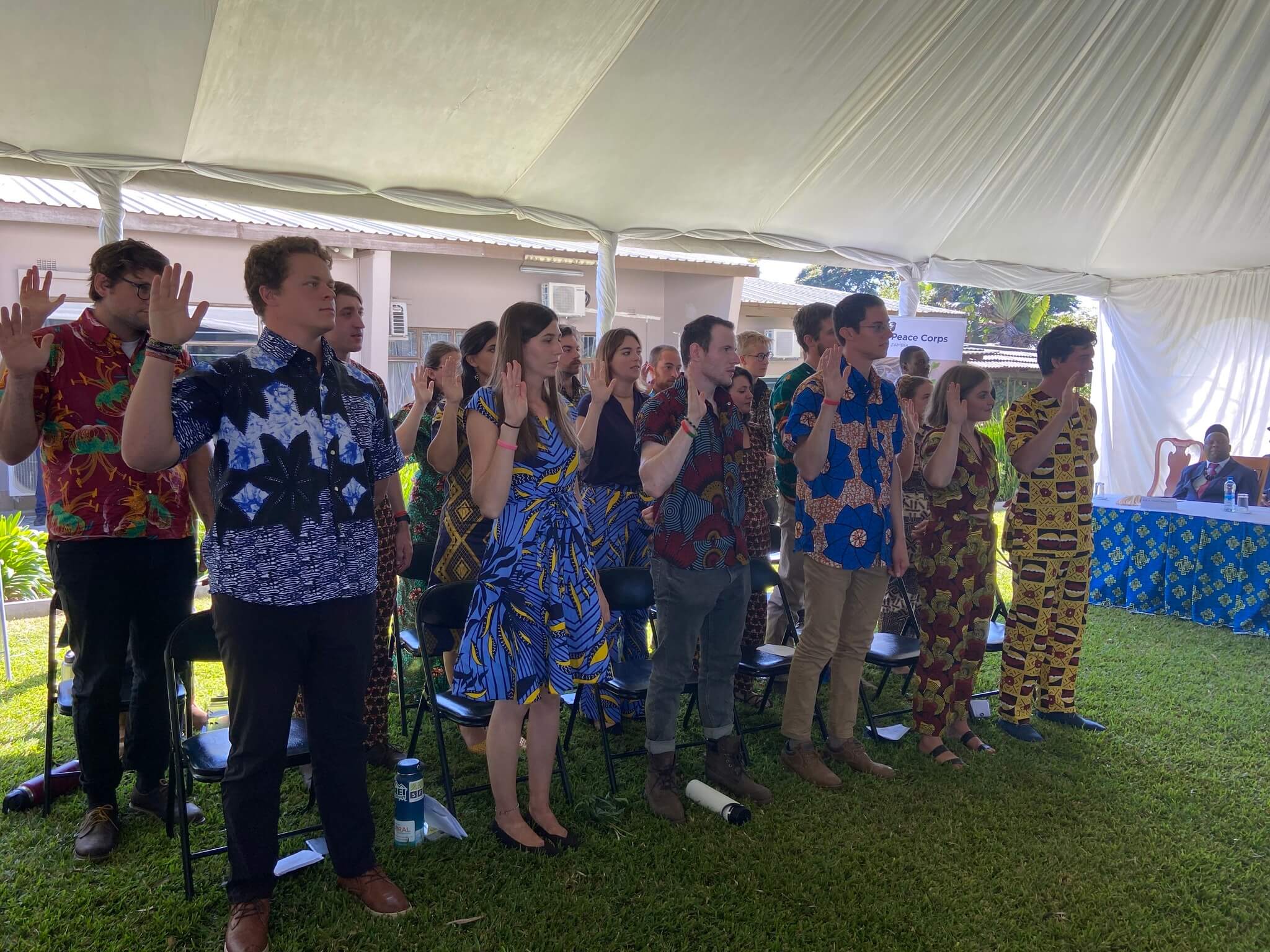
On May 24, the U.S. government, through Peace Corps Zambia, welcomed 28 new volunteers from the United States who underwent extensive training in technical skills, language, and intercultural understanding. These volunteers will serve rural areas in Zambia for a period of two years, focusing on environmental and aquaculture programs. Their presence aims to benefit local communities and small-scale farmers by improving food security, livelihoods, and resilience, while also providing essential HIV/AIDS prevention assistance. This article explores the significance of the Peace Corps’ efforts and the positive impact they bring to Zambia.
Empowering Rural Communities
Twenty of the newly sworn-in volunteers will be assigned to the Linking Income, Food, and Environment (LIFE) project, which focuses on enhancing food and nutrition security in rural areas. Through their work, these volunteers will support the livelihoods of community members while also promoting the conservation of forest resources. By implementing sustainable agricultural practices, such as agroforestry and conservation farming, the volunteers aim to improve farming methods, increase crop yields, and enhance the overall resilience of the communities they serve.
The remaining eight volunteers will contribute to the Rural Aquaculture Promotion (RAP) project. They will share their knowledge and skills in integrated aquaculture-agriculture, providing smallholder farmers with new techniques and improved practices. By introducing innovative approaches to fish farming, the volunteers will help diversify income streams and improve nutrition in rural areas. This collaboration between volunteers and farmers will contribute to the development of sustainable aquaculture systems, benefiting local communities and stimulating economic growth.
HIV/AIDS Prevention Assistance
In addition to their primary assignments, all 28 volunteers will play a crucial role in HIV/AIDS prevention through the U.S. President’s Emergency Plan for AIDS Relief (PEPFAR). By working closely with local communities, the volunteers will raise awareness about HIV/AIDS, provide education on prevention methods, and offer support to those affected by the disease. Their efforts will contribute to reducing the spread of HIV/AIDS and supporting individuals living with the virus, improving overall public health and well-being in the communities they serve.
Government Support and Ceremony
The swearing-in ceremony held for the 28 new volunteers received significant support from the Zambian government. Honorable Mukozo Chikote, the Minister of Fisheries and Livestock, was the guest of honor, demonstrating the government’s commitment to collaborating with the Peace Corps to achieve development goals. Dr. Douty Chibamba, the Permanent Secretary from the Ministry of Green Economy and Environment, and Chief Chamuka VI of the Lenje people were also present, further highlighting the importance of the volunteers’ work.
Peace Corps in Zambia
Peace Corps has been working in Zambia since 1994, at the invitation of the Zambian government. Throughout the years, over 2,400 volunteers have dedicated their time and efforts to rural communities across the country. Zambia holds the distinction of hosting the largest number of Peace Corps volunteers worldwide, a testament to the country’s commitment to development and the positive impact of the program.
The recent addition of 28 new volunteers through Peace Corps Zambia signifies the ongoing commitment of the U.S. government to support local communities and small-scale farmers in rural areas. With their expertise in environmental conservation, aquaculture, and HIV/AIDS prevention, these volunteers will contribute to improving food security, livelihoods, and public health. Their collaboration with the Zambian government and local organizations ensures sustainable development, fostering resilience and prosperity for the communities they serve. The Peace Corps’ efforts in Zambia continue to exemplify the spirit of international cooperation and the power of grassroots initiatives to drive positive change.



















Leave a Reply